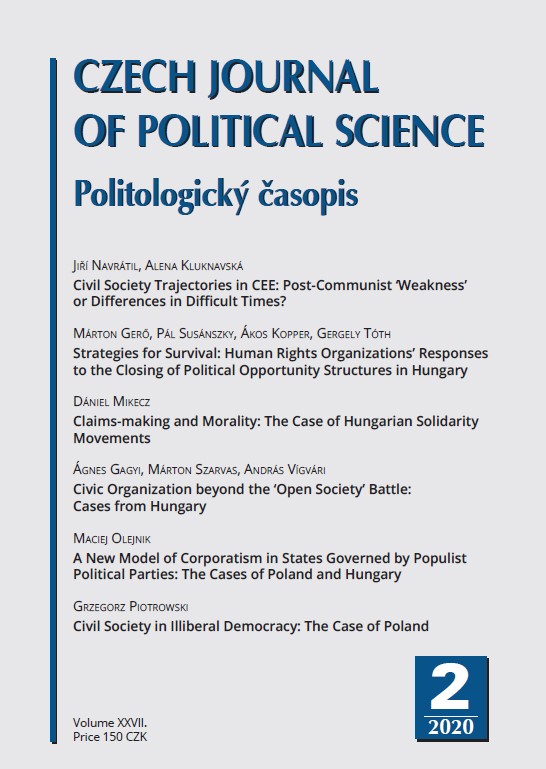Civic Organization beyond the ‘Open Society’ Battle: Cases from Hungary
Civic Organization beyond the ‘Open Society’ Battle: Cases from Hungary
Author(s): Ágnes Gagyi, Márton Szarvas, András VigváriSubject(s): Politics / Political Sciences, Social Sciences
Published by: Masarykova univerzita nakladatelství
Keywords: Civil society; hegemony; post-socialism; Hungary; informality; ethnography; housing; informal housing; housing debt; forex loan; illiberalism
Summary/Abstract: Our paper aims to contribute to the understanding of civil society in Hungary by looking beyond the struggles around open society and international NGOs, a topic that has dominated public debates on civil organizations in Hungary for the last decade. Our starting point follows the literature that has broadened the understanding of NGOs in the post-socialist space with the perspective of their insertion in global hierarchies in terms of unequal knowledge and resource transfer, material dependencies and the effects in local social settings. More attention recently has been given to the social positions of domestic civil organizations and the political and material dependencies they operate within. The analysis of organizations which represent and defend different interests within different social strata is crucial to understanding civil society in Central and Eastern Europe (CEE). Following this thread of discussions, we look at three segments of civil society which were previously understudied, to expand on how social relations structure civil society in contemporary CEE: 1) nationalist but anti-governmental organizations, for example in the field of housing; 2) urban and rural informal self-organization in order to cope with material hardships collectively has been significantly growing in the recent years; 3) rural civil organizations aligned with local elites, embedded in material dependencies, which have been present since 1990, but occupy a more and more significant role after the illiberal turn. We think that adding these segments to the study of civil society in CEE can help to broaden the analysis beyond the discursively and ideologically thematized struggles around NGOs, and contribute to a better understanding of illiberal regimes and the counter-movements they produce.
Journal: Politologický časopis - Czech Journal of Political Science
- Issue Year: XXVII/2020
- Issue No: 2
- Page Range: 158-177
- Page Count: 19
- Language: English

